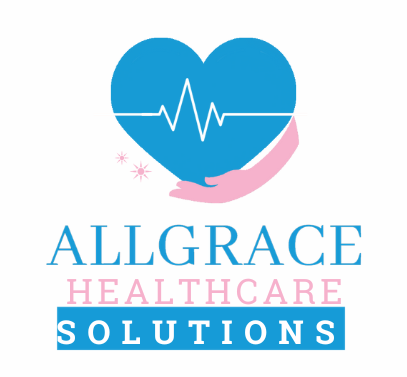Early detection and prevention play a crucial role in elder care. As individuals age, they face unique health challenges that require proactive measures to maintain their well-being. In this blog post, we will explore the importance of early detection and prevention in elder care, and how the concepts of perplexity and burstiness can be applied to improve health outcomes for older adults.
Perplexity refers to the level of uncertainty or unpredictability in a situation, while burstiness refers to the occurrence of events in clusters or bursts. In the context of elder care, perplexity can be seen in the complex and varied health issues that older adults may face, while burstiness can be observed in the sudden onset or exacerbation of health problems. By understanding these concepts and their application in elder care, we can better address the needs of older adults and promote their overall well-being.
Key Takeaways
- Early detection and prevention are crucial in elder care to maintain quality of life and prevent serious health issues.
- Catching health issues early in older adults can lead to better treatment outcomes and improved overall health.
- Aging comes with risks and challenges, but regular check-ups and a healthy lifestyle can help mitigate these risks.
- Regular check-ups play a vital role in elder care, allowing for early detection and prevention of health problems.
- Common health problems in older adults include chronic conditions like diabetes and heart disease, as well as cognitive decline and falls.
- A healthy lifestyle, including exercise and a balanced diet, can help prevent illness and improve overall health in older adults.
- Promoting early detection and prevention in elder care requires education, awareness, and access to healthcare resources.
- Early detection and prevention can have a significant impact on quality of life for older adults and their caregivers.
- Caregivers play a crucial role in elder care prevention and detection, providing support and assistance in accessing healthcare resources.
- Resources and support for early detection and prevention in elder care include healthcare providers, community programs, and caregiver support groups.
Why Early Detection and Prevention is Crucial in Elder Care
Older adults often face unique health challenges that require specialized care. As individuals age, their bodies undergo physical and cognitive changes that increase their vulnerability to various health conditions. Additionally, older adults are more likely to develop chronic illnesses such as heart disease, diabetes, and arthritis. Early detection and prevention are crucial in addressing these challenges and improving health outcomes for older adults.
Early detection allows for timely intervention and treatment, which can prevent or minimize the progression of health issues. By identifying potential problems early on, healthcare providers can develop personalized care plans that address the specific needs of older adults. This proactive approach not only improves health outcomes but also enhances the quality of life for older adults.
The Benefits of Catching Health Issues Early in Older Adults
Early detection of health issues in older adults can lead to more effective treatment and management strategies. When health problems are identified early, healthcare providers have a better chance of implementing interventions that can slow down or even reverse the progression of certain conditions. For example, early detection of cardiovascular disease can lead to lifestyle modifications, medication management, and other interventions that can prevent heart attacks or strokes.
In addition to improving health outcomes, early detection and prevention can also result in cost savings. By addressing health issues at an early stage, healthcare providers can avoid costly hospitalizations and emergency room visits. Preventive measures such as vaccinations, screenings, and lifestyle interventions can also help reduce the need for expensive treatments and procedures down the line.
Understanding the Risks and Challenges of Aging
Aging is accompanied by various physical and cognitive changes that increase the risk of health problems. Physically, older adults may experience a decline in muscle mass, bone density, and organ function. Cognitive changes can include memory loss, decreased attention span, and slower information processing. These changes make older adults more susceptible to falls, fractures, chronic diseases, and cognitive impairments.
The risk of chronic health conditions also increases with age. Conditions such as hypertension, diabetes, arthritis, and dementia become more prevalent in older adults. These chronic illnesses require ongoing management and can significantly impact an individual’s quality of life. Early detection and prevention are essential in identifying these conditions early on and implementing appropriate interventions to manage them effectively.
The Role of Regular Check-Ups in Elder Care
Regular check-ups are a crucial component of elder care as they allow healthcare providers to monitor the overall health status of older adults. During these check-ups, healthcare professionals can conduct screenings, assess risk factors, and identify potential health issues before they become more severe.
Some of the recommended screenings for older adults include blood pressure checks, cholesterol tests, diabetes screenings, cancer screenings (such as mammograms or colonoscopies), bone density scans, and cognitive assessments. These screenings help detect early signs of diseases or conditions that may not present with noticeable symptoms.
Identifying Common Health Problems in Older Adults

Older adults are prone to certain health problems that are more prevalent in their age group. Some of the most common health issues faced by older adults include cardiovascular disease, osteoporosis, arthritis, diabetes, dementia, and depression.
Symptoms and warning signs of these health problems can vary, but it is important to be aware of them to facilitate early detection and intervention. For example, symptoms of cardiovascular disease may include chest pain, shortness of breath, and fatigue. Osteoporosis may present with bone fractures or loss of height. Arthritis can cause joint pain, stiffness, and swelling. Recognizing these symptoms and seeking medical attention promptly can lead to early diagnosis and appropriate treatment.
The Importance of a Healthy Lifestyle in Preventing Illness
A healthy lifestyle plays a crucial role in preventing illness and promoting overall well-being in older adults. Diet, exercise, and other lifestyle factors can significantly impact an individual’s health outcomes.
A balanced diet that includes fruits, vegetables, whole grains, lean proteins, and healthy fats can help prevent chronic diseases such as heart disease and diabetes. Regular physical activity can improve cardiovascular health, maintain muscle strength and flexibility, and reduce the risk of falls. Other lifestyle factors such as adequate sleep, stress management, and social engagement also contribute to overall health and well-being.
Promoting healthy habits in older adults requires education and awareness. Caregivers, healthcare providers, and family members can play a vital role in providing information and support to encourage older adults to adopt healthy lifestyle choices.
How to Promote Early Detection and Prevention in Elder Care
Promoting early detection and prevention in elder care requires a multi-faceted approach. Education and awareness are key components in empowering older adults to take charge of their health. Providing information about the importance of regular check-ups, screenings, and healthy lifestyle choices can motivate older adults to prioritize their well-being.
Healthcare providers also play a crucial role in promoting early detection and prevention. By staying up to date with the latest research and guidelines, healthcare professionals can provide evidence-based care and interventions to older adults. Regular communication with older adults and their caregivers can help identify potential health issues and address them promptly.
The Impact of Early Detection and Prevention on Quality of Life
Early detection and prevention can have a significant impact on the quality of life for older adults. By identifying health issues early on, older adults can receive timely interventions that can slow down or even reverse the progression of certain conditions. This can lead to improved physical functioning, reduced pain and discomfort, and enhanced overall well-being.
Early detection and prevention also benefit caregivers and family members. By addressing health issues early, caregivers can better manage the care needs of older adults, reducing the burden and stress associated with caregiving. Family members can also experience peace of mind knowing that their loved ones are receiving appropriate care and interventions.
The Role of Caregivers in Elder Care Prevention and Detection
Caregivers play a crucial role in promoting early detection and prevention in elder care. They are often the first line of defense in identifying potential health issues in older adults. Caregivers should be vigilant in observing changes in physical or cognitive functioning, mood, behavior, or overall well-being.
Caregivers can also support older adults in maintaining a healthy lifestyle by providing nutritious meals, encouraging physical activity, ensuring medication adherence, and promoting social engagement. Regular communication with healthcare providers is essential to stay informed about recommended screenings, vaccinations, and other preventive measures.
Resources and Support for Early Detection and Prevention in Elder Care
Numerous resources and support systems are available to promote early detection and prevention in elder care. Healthcare providers can provide educational materials, brochures, or online resources that offer information about screenings, healthy lifestyle choices, and disease management.
Community organizations, senior centers, and support groups may offer programs or workshops focused on health promotion and disease prevention. These resources can provide older adults and their caregivers with the knowledge and tools they need to prioritize their health.
Early detection and prevention are crucial in elder care to address the unique health challenges faced by older adults. By understanding the importance of early detection and prevention, healthcare providers, caregivers, and family members can play an active role in promoting the well-being of older adults.
By recognizing the risks and challenges of aging, implementing regular check-ups, identifying common health problems, promoting a healthy lifestyle, and accessing available resources and support, we can prioritize early detection and prevention in elder care. By doing so, we can improve health outcomes, enhance quality of life, and ensure that older adults receive the care they deserve.
In a recent article on All Grace Healthcare, they discuss the benefits of customized in-home care plans for seniors. This article complements the importance of early detection and prevention in elder care by highlighting the significance of tailoring care plans to meet the unique needs of each individual. By providing personalized care, seniors can receive the specific assistance they require to maintain their health and well-being. To learn more about the benefits of customized in-home care plans, check out the article here.






0 Comments